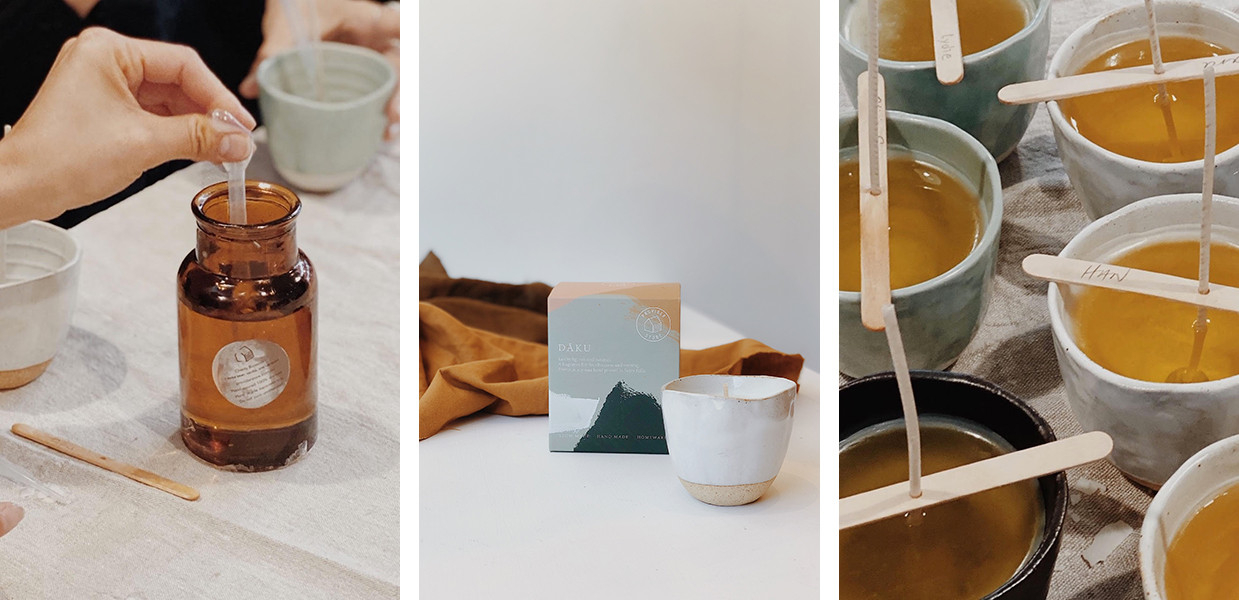Candle making kits have had exceptional popularity amongst the arts and crafts community, as of late. Being no longer relevant in a broader sense, candle making has taken on a real artisanal slant, bringing people from all walks of life to make smelly, smelly goodness together. Whether its scented candles designed to relax, candles containing essential oils that help with stabilising your mood, learning how to make candles is a fun artistic venture that people still enjoy, despite the invention of the humble lightbulb.
There are, however, a few ethical conundrums surrounding candle making that are worth delving into. We also didn’t think there’d be an ethical dilemma around candles these days, but thanks to late-stage capitalism you can’t even purchase a sandwich without an entire rainforest burning down and unfortunately, candles are no exception. Although you don’t burden the responsibility candle production has to the environment, you do have the opportunity to make eco-conscious choices to lessen the environmental impact of your decision to sit in the bath, listening to your “chill” playlist against the backdrop of flickering candlelight, so let’s explore.

What to avoid in DIY candles
Paraffin wax candles
Many candle making craft kits and workshops will work with a soy wax base. This is due to its easy obtainability, relatively affordable cost, but most of all its ethical neutrality. The majority of mass-produced candles use a paraffin oil base, which is a petroleum by-product of crude oil production.
The main purveyors of paraffin-based candles in both Australia and the US are churches, making it one of several cardinal sins they commit on a regular basis. By avoiding purchasing tea-candles in bulk and cheap candle making kits, you avoid filling the air with polycyclic hydrocarbons (potentially carcinogenic fumes released when paraffin wax burns) that can harm not just the environment, but your lungs and respiratory system as well.
Just so you know we’re not pulling your leg, a study by Maastricht University found churches that used these candles had hydrocarbon levels that exceeded main roads and highways, making it low-key dangerous to fill a room with. Of course, the irony in all of this is that paraffin wax candles replaced the traditional, old-school whale oil candles and lamps we used to indulge in years ago. We soon discovered that we were running out of whales, however, and the industry was no longer becoming profitable. Its environmentally-friendly replacement - paraffin wax - has turned out to just as bad, but for different reasons. The whales are happier though, so you know - every cloud...
Palm oil candles
Before we go any further, ClassBento needs to emphasise that none of our candle making kits or pre-quarantine workshops uses palm oil-based candles. Palm oil candles are often pitched as a cleaner candle wax alternative. This is because palm oil is still a natural base and does burn cleaner than paraffin wax, or wax with an animal fat base. Palm oil, however, is an ethical minefield.
Palm oil production is expanding more rapidly than any other agricultural commodity, with Malaysia and Indonesia producing 86 per cent of the world’s palm oil. Cultivating palm oil plantations has led to the destruction of some of the most pristine habitats, and almost solely responsible for critically endangering the existence of Asian Rhinos, Orangutans, and elephants. The destruction of these rainforests has had a lasting global impact on both the Indigenous populations of the area and the global fight against climate change.
There is such a thing as ethical palm oil production, but we’d honestly recommend you avoid this altogether when it comes to choosing your candles and your candle making kits.
Alternatively, find your sparkle with DIY jewellery making kits here.
The benefits of soy candle making kits
Soy wax is one of the most ethical choices you can make when searching for high-quality candles and candle-making kits. Soy wax is derived from a naturally existing vegetable oil (soybeans, obviously) and is entirely renewable, unlike petroleum-based paraffin wax. The hydrocarbons produced by paraffin wax will, with long term use, stain your walls and eat away at house paint. Soy wax, however, is entirely biodegradable and, on top of this, burns slower than paraffin wax, ensuring the candle burns for longer without damaging the interior of your home so you get more bang for your buck.
How to make candles at home
ClassBento’s new LiveBox classes offer you a growing range of candle-making kits to choose from. But rest assured, all of our craft boxes use sustainable materials and resources so no matter which DIY candles you choose, you’ll be making an ethically-sound choice.
Our Soy Wax Candle Making Set With Japanese Ceramic class is one of the best craft kits for adults ClassBento is currently offering. You’ll learn everything you need to know when it comes to learning how to make your own candles at home, as well as a few neat tips and techniques for setting candles in different ceramics. The craft box contains a Japanese style ceramic vase for you to set your first candle in and Tara from Provider Store will be on the live stream to help you work through it.
If you’re after a little more flexibility in the area of candle fragrances, Handmaker’s Factory in Melbourne are offering their Soy Wax Candle-Making Workshop with both essential oils provided, and the instructions on how to use your own, if you have a preferred fragrance lying around. Both of these workshops have a strong stance on ethically sourced materials and tools, so you can be guaranteed that no matter which of the candle-making kits you choose from, you’ll be learning how to make your own candles at home from ethically sourced and environmentally-conscious products.





















